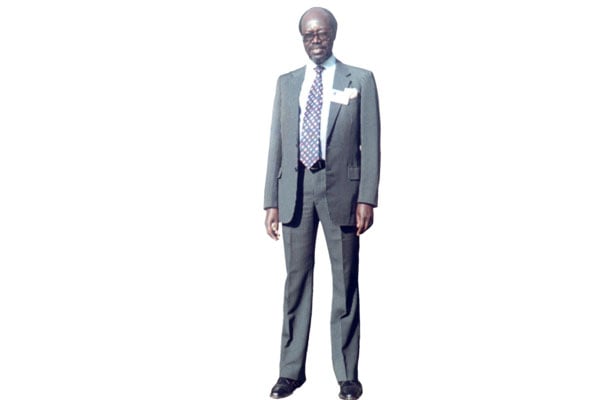Prime
Reflections on Apostle Matthew

Harold Acemah
What you need to know:
‘‘Like some contemporary tax collectors, he cheated and extorted money from fellow Jews with impunity”
In the Church calendar Wednesday, September 21, will be celebrated as the Feast of St Matthew, apostle and evangelist. Matthew, aka Levi, was a tax collector, an odd man out of the 12 disciples of Jesus Christ and author of the first of four Gospels of the Holy Bible. Matthew is the patron saint of tax collectors, accountants and bankers.
My home church, where my father served as parish priest for many years, is named St Matthew’s Church of Uganda, Drikpara, Wandi Parish, Terego Archdeaconry. My son, Matthew Acemah, was baptised at my spiritual home in Kampala, All Saints Cathedral, Nakasero.
Matthew’s calling as a disciple is recorded in chapter 9 of his book as follows: “As Jesus went on from there, he saw a man named Matthew sitting at the tax collector’s booth. Follow me, he told him and Matthew got up and followed him.
While Jesus was having dinner at Matthew’s house, many tax collectors and ‘sinners’ came and ate with him and his disciples. When the Pharisees saw this, they asked his disciples, ‘Why does your teacher eat with tax collectors and sinners?”
Jesus replied: “It is not the healthy who need a doctor, but the sick. But go and learn what this means: ‘I desire mercy, not sacrifice.’ For, I have not come to call the righteous, but sinners.” Matthew 9: 9-12 (NIV).
Matthew reminds me of some Uganda Revenue Authority (URA) workers who are very unpopular in the West Nile sub-region, especially in Arua City. According to wananchi, they are callous, corrupt, insensitive, ruthless, violent and unreasonable in the discharge of their duties, especially in collection of taxes from businessmen.
Matthew was unlike the other disciples of Jesus who were fishermen from Galilee, former disciples of John the Baptist and many were close relatives, such as, Peter and Andrew, John and James sons of Zebedee. Matthew was a Jewish collaborator who worked for the hated Roman Empire whom the zealots despised and disliked. Like some contemporary tax collectors, he cheated and extorted money from fellow Jews with impunity.
Matthew is a classic case of a man who was initially a liability to his team, but became an indispensable asset.
The fundamental change in his mindset, values and commitment to serve Jesus Christ is evident in Matthew’s Gospel. Christians celebrate the Feast of St Matthew precisely because his commitment to follow Christ demonstrates that God has the power to transform a sinner into a saint for His glory.
As we prepare to celebrate the feast of this sinner turned saint next Wednesday, I urge Ugandans, especially tax collectors, accountants and bankers, to emulate his good example.
In chapter 5 of the gospel according to Matthew, you will find and read the complete rendition and version of the Beatitudes which begins: “Blessed are the poor in spirit, for theirs is the kingdom of heaven,” and includes, “Blessed are the pure in heart, for they will see God.”
One of my favourite hymns by J Keble and others begins, “Blest are pure in heart, for they shall see our God” and reminds me of beautiful, insightful, meaningful and poetic words spoken by Jesus in his Sermon on the Mount.
It’s Matthew who wrote about “the Great Commission” Jesus Christ gave his disciples on the day he ascended into heaven. Jesus told the 11 disciples, “All authority in heaven and on earth has been given to me. Therefore, go and make disciples of all nations, baptising them in the name of the Father and of the Son and of the Holy Spirit, and teaching them to obey everything I have commanded you. And surely I am with you always, to the very end of the age.” Matthew 28: 18-20 (NIV).
Mr Acemah is a political scientist and retired career diplomat. [email protected]




